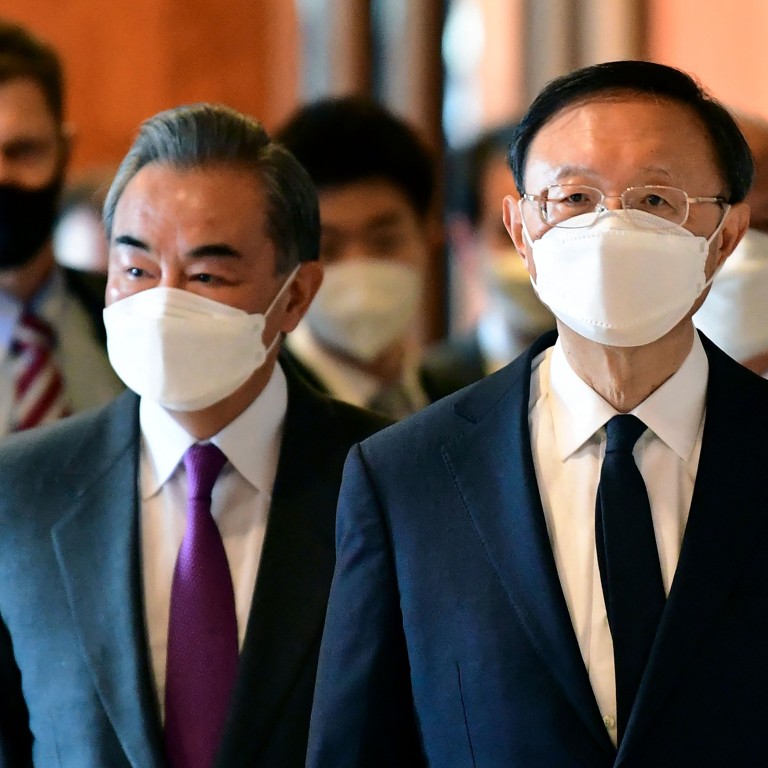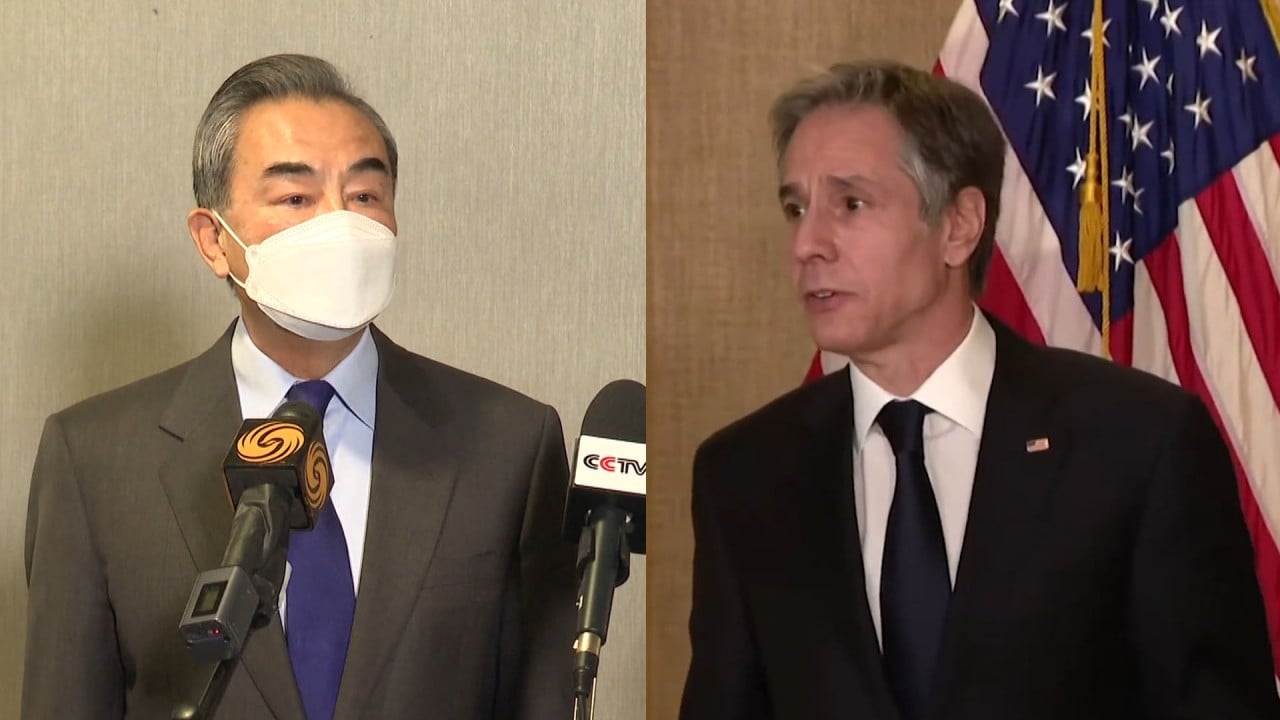
Alaska summit: for China and the US, a narrow road through deep divisions
- Relations will get worse before they get better as each country regroups with allies and partners, observers say
- The Anchorage meetings were a chance for each side to size the other up as they consider longer term plans
Senior officials from the two countries met in three sessions in Anchorage, Alaska, on Thursday and Friday.
After the meetings, both sides noted a gulf on many contentious issues, but pledged to work together in areas such as climate change, Iran, North Korea, and Afghanistan.
Top Chinese diplomat Yang Jiechi called the talks “direct, frank and constructive”.
In a statement released after the meeting, Beijing said the two countries would set up a joint working group on climate change.
Beijing also said they discussed arrangements for diplomats and consular staff from both countries to have coronavirus vaccines, and how to foster exchanges between those missions and other groups, including the media.
It said travel and visa policies were also on the table, raising the prospect that restrictions could be eased.
US-China talks: what message did their public spat send to observers?
Observers said the meeting gave each side the chance to size each other up before they return to their corners to formulate a longer term strategy for future engagement.
“Not much was achieved at the meeting, but both sides were able to get an initial consensus on some issues,” said Wu Xinbo, director of the Centre for American Studies at Fudan University in Shanghai.
“The Biden administration is still making up its mind on its China strategy. And now we see the faction advocating ideological and geopolitical competition gaining the upper hand over the one pushing for cooperation on the economy and global governance.
“China needs to send a message to the Biden administration through this dialogue that a hardline approach is just not going to work with China.”

04:07
Alaska summit: China tells US not to underestimate Beijing’s will to safeguard national dignity
In a longer-than-usual opening statement, Yang, who is also a member of the Politburo, the second most important decision-making body in China, touted China’s success in containing Covid-19 and tackling poverty while the US was still battling the pandemic.
He also accused the US of taking a “condescending” approach to the talks, adding that American officials had no right to lecture Beijing on human rights given the killing of African-Americans in the United States.
Yang’s rhetoric earned him widespread praise at home, with People’s Daily, the Communist Party’s official mouthpiece, invoking Western powers’ subjugation of the Chinese empire in the 19th century, and China’s new-found confidence in confronting the United States today.
After the meeting, US national security adviser Jake Sullivan said the American delegation “expected to have tough direct talks on a wide range of issues, and that’s exactly what we had, the opportunity to lay out our priorities and intentions and hear from the Chinese side, their priorities and intentions”.
“We were clear-eyed going in and we’re clear-eyed coming out. So we’ll go back to Washington and continue to take stock of where we are” and consult further with allies, Sullivan said.
Chinese Foreign Minister Wang Yi said the US should not underestimate China’s determination to defend its interests and sovereignty, while holding out the possibility of cooperation.
“China and the US should move towards each other while respecting each other’s core interests. With this common ground, China is willing to adopt an open attitude to the United States,” Wang said.
Alaska summit: what the US and China agree on, and what still divides them
Observers said the initial fiery encounter was aimed at their domestic audience.
“Both sides face pressure due to domestic politics. China needs to show its strength in the face of much criticism from the US. But the two sides can be more practical in their subsequent negotiations,” said Wang Yong, a professor of international relations at Peking University.
Climate change could open a way for the two countries to work together, giving Biden and Chinese President Xi Jinping a chance to hold talks again possibly in the coming months, Wang said.
“There will be a United Nations video conference to commemorate Earth Day on April 22. That would be a great opportunity for President Xi and President Biden to talk again to coordinate their approach before that,” he said.

02:22
China had ‘defensive response’ when US raised hot-button issues, Antony Blinken says
But relations between China and the US are likely to get worse before they get better.
The Biden administration has inherited the Trump team’s assessment that China is America’s top geopolitical rival, and signalled that it will work with a network of global allies to counter China.
That regrouping with allies and partners is already under way.
Blinken will be heading to Brussels for Nato talks and to discuss China with European allies.
US Defence Secretary Lloyd Austin was with Blinken to Tokyo and Seoul earlier this week and is now in New Delhi.
Fu Ying, a former Chinese ambassador and vice foreign minister, said relations between China and the US would worsen but they would eventually settle.
“These relations will further decline before they reach a plateau, stabilise, and eventually return to normal and go upward,” Fu said on Saturday at the China Development Forum, an annual forum hosted by the State Council’s Development Research Centre.
“The key is whether China and the US can resolve their concerns and peacefully coexist under the same international framework.”


